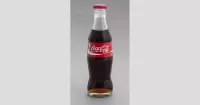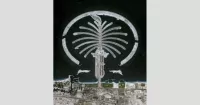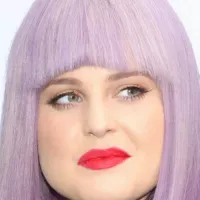The Premier League is the top-tier professional football league in England, featuring 20 clubs competing in a promotion and relegation system with the English Football League. The season runs from August to May, with each team playing 38 matches in a double round-robin format, ensuring each team plays every other team twice, once at home and once away. Matches are typically held on weekend afternoons, with some weekday evening games. It represents the highest level of English football.
1948: Attendance Record Set in 1948-49 Season
The 1948–49 season set an attendance record that stood for over 70 years, before being broken in the 2021-22 season.
November 1986: Alex Ferguson Manages Manchester United
Alex Ferguson was in charge of Manchester United from November 1986 until his retirement at the end of the 2012–13 season.
1989: Hillsborough Disaster and Taylor Report
In 1989, the Hillsborough disaster and the subsequent Taylor Report led to the recommendation that standing terraces should be abolished in football stadiums.
1991: Expansion of Top Flight to 22 Teams
In 1991, the top flight was expanded to 22 teams, a year before the formation of the Premier League.
1992: Foreign Players at Inception
At the inception of the Premier League in 1992–93, just 11 players named in the starting line-ups for the first round of matches hailed from outside of the United Kingdom or Ireland.
1992: Premier League's First Season Attendances
During the Premier League's first season (1992–93), the average attendance was 21,126; however, stadium capacities were reduced as clubs replaced terraces with seats to meet the Taylor Report's 1994–95 deadline.
1992: Start of Premier League Championships
From the 1992-93 season, there are 51 teams that have taken part in the Premier League championships.
1992: Inception of Premier League
From the Premier League's inception in 1992, fifty-one clubs have played.
1992: Broadcasting rights assigned to Sky
In 1992, the Premier League's decision to assign broadcasting rights to Sky was a radical decision that ultimately paid off.
1992: Premier League Golden Boot Since 1992-93
Since the first Premier League season in 1992–93, the Premier League Golden Boot has been awarded each season to the top scorer in the division; 23 players from 11 clubs have won or shared the title.
1993: Carling Sponsorship
In 1993, Carling became the Premier League's sponsor until 2001, renaming it the FA Carling Premiership.
1994: Topps held licence to produce collectables for the Premier League
In 1994, Topps began holding the licence to produce collectables for the Premier League, including stickers and trading cards.
1994: Taylor Report Deadline
The 1994–95 season was the deadline for clubs to replace terraces with seats in order to meet the Taylor Report's requirements.
1995: Reduction of Clubs in the Premier League
In 1995, the number of clubs in the Premier League was reduced from 22 to 20.
1996: Arsène Wenger Joins Arsenal
In 1996, Arsène Wenger became the manager of Arsenal in the Premier League, marking the start of his long tenure.
1997: All three promoted clubs relegated
In the 1997-98 season, all three promoted clubs were relegated by the end of the season.
1997: TV rights contract rose to £670 million
Starting from the 1997-98 season, the Premier League's TV rights contract rose to £670 million over four seasons.
1998: Wimbledon Relocation Blocked
In 1998, Wimbledon received Premier League approval to relocate to Dublin, Ireland, but the move was blocked by the Football Association of Ireland.
July 1999: Premier League rights selling method investigated
In July 1999, the Premier League's method of selling rights collectively for all member clubs was investigated by the UK Restrictive Practices Court, which concluded that the agreement was not contrary to the public interest.
December 1999: Chelsea Fields All-Foreign Starting Line-up
On 26 December 1999, Chelsea became the first Premier League side to field an entirely foreign starting line-up.
1999: Home Office Tightens Work Permit Rules in 1999
In 1999, the Home Office tightened its rules for granting work permits to players from countries outside of the European Union due to concerns about clubs prioritizing foreign players over young English players.
2000: Foreign Players Reach 36% in 2000-01
By the 2000–01 season, the number of foreign players participating in the Premier League was 36% of the total.
2001: £1.024 billion deal with BSkyB
In 2001, The Premier League made a £1.024 billion deal with BSkyB for the three seasons from 2001 to 2004.
2001: Barclaycard Sponsorship
In 2001, a sponsorship deal with Barclaycard saw the league rebranded as the FA Barclaycard Premiership.
2001: Premier League newcomer avoided relegation
The 2001–02 season was one of the seasons where a Premier League newcomer avoided relegation back to the Football League.
2002: Office of Fair Trading investigated BSkyB
In 2002, the Office of Fair Trading investigated BSkyB and found it to be dominant within the pay TV sports market but concluded there were insufficient grounds for the claim that BSkyB had abused its dominant position.
2004: £320 million from international rights
For the three-year period from 2004 to 2007, the Premier League brought in £320 million from the sale of its international rights.
2004: Arsenal's Special Gold Trophy in 2004
In 2004, a special gold version of the Premier League trophy was commissioned to commemorate Arsenal winning the title without a single defeat.
2004: Rebrand to FA Barclays Premiership
In 2004, the league was rebranded to the FA Barclays Premiership.
2004: Foreign Players Reach 45% in 2004-05
In the 2004–05 season, the number of foreign players participating in the Premier League had increased to 45%.
February 2005: Arsenal Names Completely Foreign Squad
On 14 February 2005, Arsenal were the first to name a completely foreign 16-man squad for a match.
2005: Thierry Henry Wins Scoring Title in 2005-06
Thierry Henry won his fourth overall scoring title by scoring 27 goals in the 2005–06 season.
June 2006: FIFA Request to Reduce League Teams
In June 2006, FIFA requested that major European leagues reduce to 18 teams, but the Premier League resisted this change.
August 2006: Setanta Sports awarded Premier League rights
In August 2006, Setanta Sports was awarded rights to show two out of the six packages of Premier League matches, breaking Sky's monopoly.
2007: League Rebranded as Barclays Premier League
For the 2007-08 season, the Premier League was rebranded as the Barclays Premier League.
2007: New deals give clubs £40 million a year
From 2007 to 2010, new deals for Sky, Setanta, and the BBC gave Premier League clubs an average media income from league games of around £40 million-a-year.
2007: League remains at 20 teams
In 2007, the Premier League kicked off the season again with 20 teams, ignoring FIFA's request to reduce the league to 18 teams.
2007: Topps Match Attax trading card game launched
In the 2007–08 season, Topps launched Match Attax, the official Premier League trading card game, which became the best selling boys collectable in the UK and the biggest selling sports trading card game in the world.
June 2009: ESPN awarded UK rights to Premier League matches
On 22 June 2009, ESPN was awarded two packages of UK rights to Premier League matches for the 2009-10 season as well as a package of 23 matches per season from 2010 to 2013, after Setanta Sports failed to meet a payment deadline.
2009: English Players Under 40% by 2009
By 2009, under 40% of the players in the Premier League were English.
2009: Premier League had highest revenue of any football league
In 2009-10, the Premier League had the highest revenue of any association football league in the world, with total club revenues of €2.48 billion.
2010: Premier League Introduces Squad Registration Rules
As of the 2010–11 season, the Premier League introduced new rules mandating that each club must register a maximum 25-man squad of players aged over 21, with a requirement for at least eight "home-grown players".
2010: Deals gave clubs £40 million a year
From 2007 to 2010, new deals for Sky, Setanta, and the BBC gave Premier League clubs an average media income from league games of around £40 million-a-year.
2010: Premier League awarded Queen's Award for Enterprise
In 2010, the Premier League was awarded the Queen's Award for Enterprise in the International Trade category for its contribution to international trade and the value it brings to English football and the UK broadcasting industry.
2010: TV rights purchased for £1.782 billion
Television rights alone for the period 2010 to 2013 were purchased for £1.782 billion.
August 2011: First Premier League Match Played Outside England
On August 2011, the first Premier League match to be played outside England was Swansea City's home match against Wigan Athletic.
2011: Relegation of Blackburn Rovers
In 2011, Blackburn Rovers were relegated, becoming the first Premier League-winning club to be relegated.
2011: Premier League newcomer avoided relegation
The 2011-12 season was one of the seasons where a Premier League newcomer avoided relegation back to the Football League.
March 2012: UEFA Clarifies Welsh Clubs' Participation
In March 2012, UEFA clarified that Welsh clubs were allowed to participate in European competitions.
June 2012: BT awarded Premier League games
On 13 June 2012, the Premier League announced that BT had been awarded 38 games a season for the 2013-14, 2014-15 and 2015-16 seasons at £246 million-a-year.
December 2012: Premier League clubs agreed on new cost controls
In December 2012, Premier League clubs agreed in principle to radical new cost controls, including a break-even rule and a cap on wage bill increases.
2012: Alex Ferguson Retires
Alex Ferguson retired at the end of the 2012–13 season after managing 810 matches with Manchester United from the Premier League's inception.
2012: Chelsea Qualifies for Champions League
In 2012, Chelsea qualified for the 2012-13 Champions League after winning the Champions League that summer, pushing Tottenham Hotspur into the Europa League.
2012: Premier League Celebrates 20 Seasons in 2012
In 2012, the Premier League celebrated its second decade by holding the 20 Seasons Awards.
2013: BT awarded Premier League games
In 2012, BT had been awarded 38 games a season for the 2013-14, 2014-15 and 2015-16 seasons at £246 million-a-year.
2013: NBC Sports Acquires Premier League Rights
In 2013, NBC Sports acquired the rights to broadcast the Premier League in the United States, replacing Fox Soccer and ESPN.
2013: Swansea Takes English Place in Europa League
In 2013, Swansea took one of England's three available places in the Europa League by winning the League Cup.
2013: Cardiff City Gains Promotion
In 2013, the number of Welsh clubs in the Premier League increased to two as Cardiff City gained promotion.
2013: Premier League clubs collectively made a net profit
In 2013-14, Premier League clubs collectively made a net profit in excess of £78 million due to improved television revenues and cost controls, exceeding all other football leagues.
2013: Parachute payments in excess of £60 million
Starting with the 2013-14 season, Premier League parachute payments to relegated clubs were in excess of £60 million over four seasons.
2014: BT awarded Premier League games
In 2012, BT had been awarded 38 games a season for the 2013-14, 2014-15 and 2015-16 seasons at £246 million-a-year.
June 2015: Barclays Ends Title Sponsorship
In June 2015, Barclays announced that it would not pursue further title sponsorship deals for the Premier League, aiming for a "clean" brand.
2015: Europa League Champions Qualify for Champions League
From 2015, the Europa League champions qualify for the Champions League, increasing the maximum number of participants per country to five.
2015: NBC Sports Extends Premier League Broadcast Deal
In 2015, NBC Sports reached a six-year extension with the Premier League to broadcast the league until the end of the 2021–22 season in a deal valued at $1 billion (£640 million).
2015: Sky and BT paid £5.136 billion
In 2015, Sky and BT paid £5.136 billion to renew their contracts with the Premier League for another three years up to the 2018-19 season.
August 2016: BBC to create Premier League Show
In August 2016, it was announced the BBC would be creating a new magazine-style show for the Premier League entitled The Premier League Show.
2016: Central payments for the season
In 2016, central payments for the 2016-17 season amounted to £2,398,515,773 across the 20 Premier League clubs.
2016: BBC's highlights package ended
In 2016, the BBC's highlights package on Saturday and Sunday nights, as well as other evenings when fixtures justify, ended.
2016: Increased Champions League Participants
In 2016, the new rule of Europa League champions qualifying for the Champions League took effect in England.
May 2017: Burnley finished 16th in the Premier League
In May 2017, Burnley finished 16th in the Premier League and received a merit payment of £9,708,045.
2017: Arsène Wenger's Departure from Arsenal
Arsène Wenger departed from Arsenal at the conclusion of the 2017–18 season, ending his long tenure as manager.
2017: Milestone Awards Introduced in 2017-18 Season
From the 2017–18 season, players receive a milestone award for 100 appearances and every century thereafter, and also players who score 50 goals and multiples thereof.
2017: Cardiff Promoted Again
In 2017, Cardiff were promoted to the Premier League again.
2017: Manchester United Qualifies for Champions League
In 2017, Manchester United finished sixth in the Premier League and won the Europa League, giving England five Champions League entrants.
2017: Cadbury became official snack partner
In 2017, the chocolate company Cadbury became the official snack partner of the Premier League and began sponsoring awards.
2017: Premier League newcomer avoided relegation
The 2017-18 season was one of the seasons where a Premier League newcomer avoided relegation back to the Football League.
February 2018: BT and Sky awarded packages
In February 2018, BT was awarded the package of 32 lunchtime fixtures on Saturdays, whilst Sky was awarded four of the seven packages.
June 2018: Amazon acquired rights to Premier League matches
In June 2018, Amazon Prime Video acquired rights to 20 Premier League matches per-season, covering a mid-week round in December, and all Boxing Day fixtures.
October 2018: Panini awarded licence to produce Premier League collectables
In October 2018, Panini was awarded the licence to produce Premier League collectables, taking over from Topps starting with the 2019–20 season.
2018: Swansea City Relegated
In 2017-18 season, Swansea City had been relegated from the Premier League.
2018: Average Player Wage in 2018-19 Season
In the 2018–19 season, the average annual salary for a Premier League player stood at £2.99 million.
2018: Premier League Salary Bill in 2018-19
In the 2018–19 season, the total salary bill for the 20 Premier League clubs was £1.62 billion.
2018: Sky and BT contracts extended
Sky and BT extended their contracts with the Premier League in 2015 until the 2018-19 season.
December 2019: Richard Masters appointed Chief Executive
In December 2019, Richard Masters was appointed as the chief executive of the Premier League.
2019: New rights cycle began with increased matches
In 2019, A new rights cycle began in the 2019-20 season, with the domestic package increasing to 200 matches overall.
2019: Rights remained as they were
In 2019, Rights remained as they were since the 2019–20 season.
2019: Topps Premier League collectables licence ended
In 2019, Topps' licence to produce collectables for the Premier League ended, after holding the licence since 1994.
2019: Introduction of Video Assistant Referee (VAR)
In 2019, Video Assistant Referee (VAR) was introduced to the Premier League to assist referees in making decisions on the pitch. This technology has received mixed reviews.
2019: All remaining matches carried on TV
In 2019, With the resumption of play in the 2019–20 Premier League due to the COVID-19 pandemic in the United Kingdom, the Premier League announced that all remaining matches would be carried on British television, split primarily across Sky, BT, and Amazon.
2019: League generated around £3.1 billion per year
In 2019, the Premier League generated around £3.1 billion per year in domestic and international television rights.
2019: Young Player of the Season Award Starts in 2019
Starting from the 2019–20 season, the Young Player of the Season award is given to the most outstanding U-23 player.
February 2020: Premier League Nationalities by 2020
By February 2020, 117 different nationalities had played in the Premier League, and 101 nationalities had scored in the competition.
2020: Matches broadcast through September
In 2020, as matches continued to be played without spectators upon the start of the 2020–21 Premier League, its clubs voted on 8 September to continue broadcasting all matches through at least September.
2020: Coca-Cola sponsored Golden Boot and Golden Glove
In 2020-2021 season, The Coca-Cola Company (under its Coca-Cola Zero Sugar product line) sponsored the Golden Boot, Golden Glove and Playmaker of the Season awards.
January 2021: New Regulations After Brexit in January 2021
Following the implementation of Brexit in January 2021, new regulations were introduced which require all foreign players to obtain a Governing Body Endorsement (GBE) in order to play football in the United Kingdom, regardless of EU status.
April 2021: Ramadan Fast Pause
On April 2021, a Premier League game between Leicester City and Crystal Palace paused to allow Muslim players Wesley Fofana and Cheikhou Kouyaté to break their Ramadan fast, marking a historic first for the league.
May 2021: Richard Masters Speaks Out Against Independent Regulator
In May 2021, Premier League chief executive Richard Masters opposed the implementation of an independent regulator, defending the Premier League's role as regulator.
July 2021: Amanda Staveley Criticizes Premier League
On July 2021, Amanda Staveley criticized the Premier League for its lack of transparency and accountability regarding the attempted takeover of Newcastle United by a PIF-backed consortium.
July 2021: Premier League Loses Trust and Confidence of Fans
On July 2021, Tracey Crouch announced the interim findings of the fan-led review, stating that the Premier League had "lost the trust and confidence" of fans.
November 2021: NBC Extends Premier League Broadcast Rights
In November 2021, NBC reached a six-year extension to broadcast the Premier League through 2028, in a deal valued at $2.76 billion (£2 billion).
2021: Castrol became sponsor for Golden Boot and Golden Glove
As of the 2021-22 season, Castrol became the sponsor of the Golden Boot, Golden Glove and Playmaker of the Season awards, replacing Coca-Cola.
2021: Broadcast rights awarded to iQiyi, Migu and CCTV
In China, the broadcast rights were awarded to iQiyi, Migu and CCTV that began in the 2021–22 season.
2021: New Awards Introduced in 2021-22 Season
Starting with the 2021–22 season, four new awards are given: Save of the Season, Game Changer of the Season, Most Powerful Goal, and Most Improbable Comeback.
2021: Attendance Record in 2021-22 Season
The 2021–22 season set an attendance record of 39,989, breaking an over 70-year-old record set in the 1948–49 season.
2022: Canadian media rights owned by FuboTV
As of the 2022–23 season, Canadian media rights to the Premier League are owned by FuboTV.
2022: Record Attendances in 2022-23 Season
During the 2022–23 season, average attendances across the league clubs were 40,235 for Premier League matches with an aggregate attendance of 15,289,340, setting a competition record for total attendance and surpassing the previous record of 39,989 set in the 2021–22 season.
2022: Pausing of 2022-23 season for World Cup
In 2022, the Premier League season was paused for six weeks to accommodate the first winter World Cup.
2022: Rights renewed without tender
In 2022, the rights cycle between 2022–23 and 2024–25 season was renewed without tender due to COVID-19.
2022: Premier League newcomer avoided relegation
The 2022-23 season was one of the seasons where a Premier League newcomer avoided relegation back to the Football League.
May 2023: Erling Haaland Sets Goal Record in May 2023
As of 15 May 2023, Erling Haaland holds the record for most goals in a Premier League season (38 matches) with 36 goals.
2023: Premier League Stadiums in 2023
As of the 2023–24 season, Premier League football has been played in 61 stadiums since the formation of the division.
2023: Manchester City Wins Fourth Consecutive Title
In 2023, Manchester City won the Premier League for the sixth time in seven years, making them the first top-flight side to win four consecutive league titles.
2023: Premier League Representatives in European Club Association
In 2023, the Premier League had 13 representatives in the European Club Association.
2023: Alison Brittain becomes Chair
In early 2023, Alison Brittain took over the role of chair in the Premier League.
2023: All three promoted clubs relegated
In the 2023-24 season, all three promoted clubs were relegated by the end of the season.
October 2024: Government Plans to Regulate Stadium Sales
In October 2024 it was reported that the government is planning to grant the independent regulator authority to stop Premier League clubs from selling their stadiums to affiliated or third-party companies.
November 2024: Premier League to end agreement with IMG
On 22 November 2024, the Premier League announced plans to end its agreement with IMG and take Premier League Productions in-house beginning in 2026–27.
2024: Rights renewed without tender
In 2022, the rights cycle between 2022–23 and 2024–25 season was renewed without tender due to COVID-19.
2024: Liverpool Secures Premier League Title
In 2024, Liverpool secured their second Premier League title, ending Manchester City's run.
2024: All three promoted clubs relegated
In the 2024-25 season, all three promoted clubs were relegated by the end of the season.
June 2025: Coefficient Standings
As of June 2025, the coefficients for the top five European leagues are as follows.
2025: Top Flight Championships Participation Count
As of 2025-26 season, 65 teams have taken part in the English top flight championships.
2025: Number of teams participating in Premier League
As of the 2025-26 season, 51 teams have taken part in the Premier League championships.
2025: Broadcasting Rights Across Europe Until 2025
Broadcasters to continental Europe until 2025 include Canal+ for France, Sky Sport Germany for Germany and Austria, Match TV for Russia, Sky Sport Italy for Italy, Eleven Sports for Portugal, DAZN for Spain, beIN Sports Turkey to Turkey, Digi Sport for Romania, and NENT to Nordic countries (Sweden, Denmark and Norway), Poland and the Netherlands.
2025: Puma Becomes Official Ball Supplier
In 2025, Puma became the official ball supplier for the Premier League, taking over from Nike.
2025: Teams Competing in the 2025-26 Season
In 2025, twenty clubs are competing in the Premier League, including the top seventeen from the previous season and three promoted from the Championship.
2025: Fifty-one clubs have played in the Premier League
Up to and including the 2025–26 season, fifty-one clubs have played in the Premier League since its inception in 1992.
2026: Premier League Productions to be taken in-house
In 2026–27, Premier League Productions will be taken in-house, ending the agreement with IMG.
2028: NBC Broadcast Rights Deal Through 2028
NBC's six-year extension reached in November 2021 secured the broadcast rights to the Premier League through 2028.
Mentioned in this timeline

Coca-Cola is a globally recognized cola soft drink produced by...

Liverpool is a port city and metropolitan borough located in...

Amazon Prime is a subscription service offering a variety of...
The National Broadcasting Company NBC is a major American commercial...
Amazon Prime Video is a subscription-based video streaming service owned...
Germany officially the Federal Republic of Germany is a nation...
Trending

45 minutes ago Mavericks waive Tyus Jones, sign Ryan Nembhard to a two-year contract.

45 minutes ago Loud Bang and Fire Reported at Dubai's Palm Jumeirah; Investigation Underway

46 minutes ago Kayleigh McEnany falsely claims Trump never flew on Epstein's plane, sparking controversy.

46 minutes ago Kelly Osbourne Responds to Body-Shaming Comments Regarding Her Appearance and Weight Loss.
2 hours ago Diego Garcia: Britain's Chagos deal faces opposition amid military base concerns and global implications.

2 hours ago Charles Leclerc and Alexandra Saint Mleux Spark Marriage Rumors in Monaco
Popular

Jesse Jackson is an American civil rights activist politician and...

Hillary Diane Rodham Clinton is a prominent American politician lawyer...

XXXTentacion born Jahseh Dwayne Ricardo Onfroy was a controversial yet...

Michael Joseph Jackson the King of Pop was a highly...

Barack Obama the th U S President - was the...

Susan Rice is an American diplomat and public official prominent...